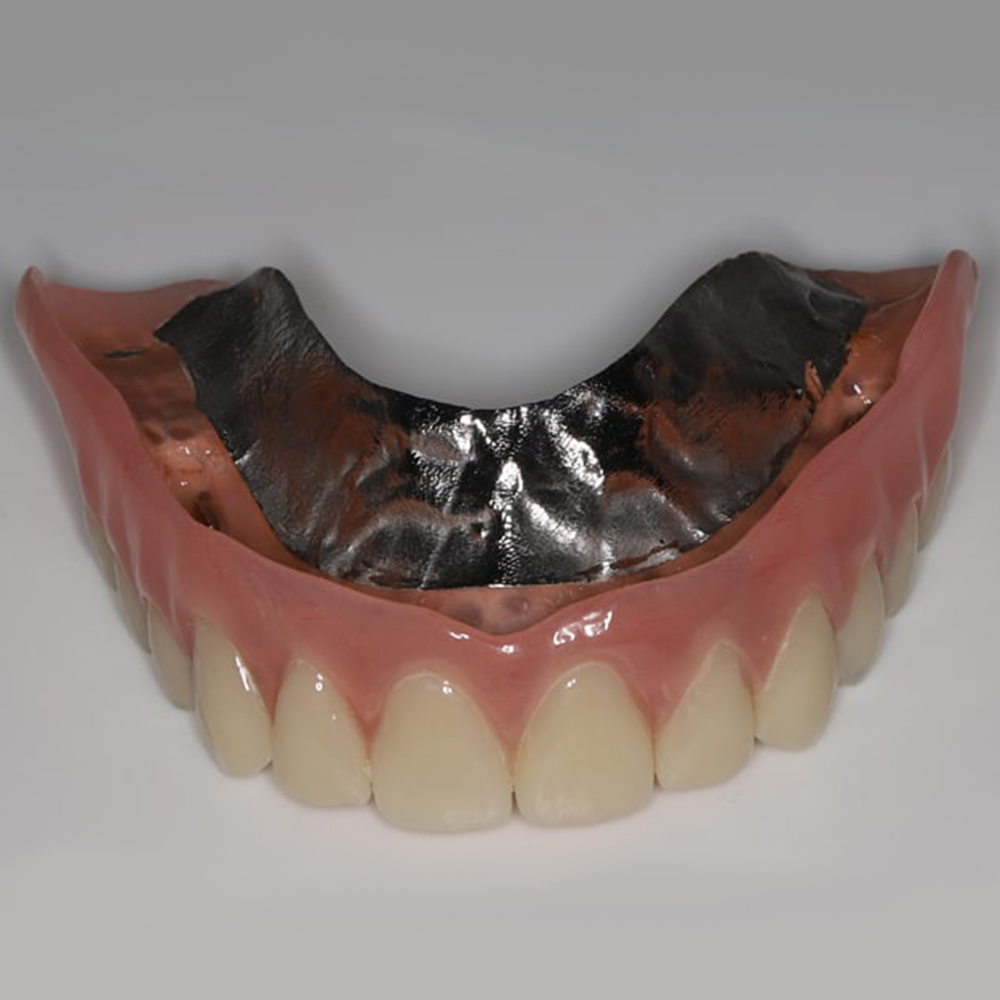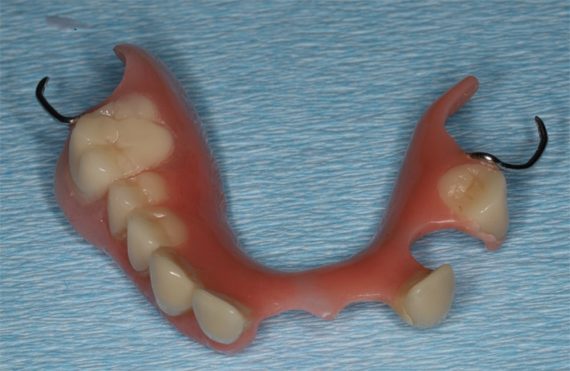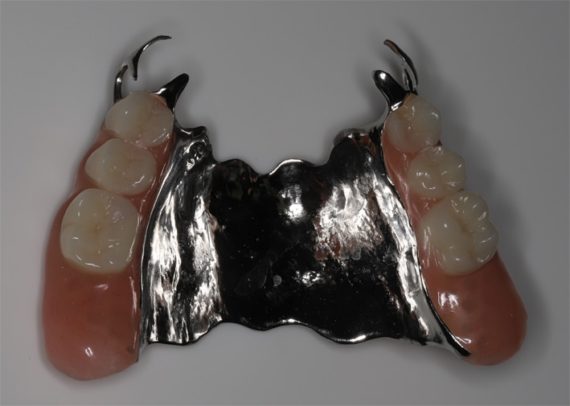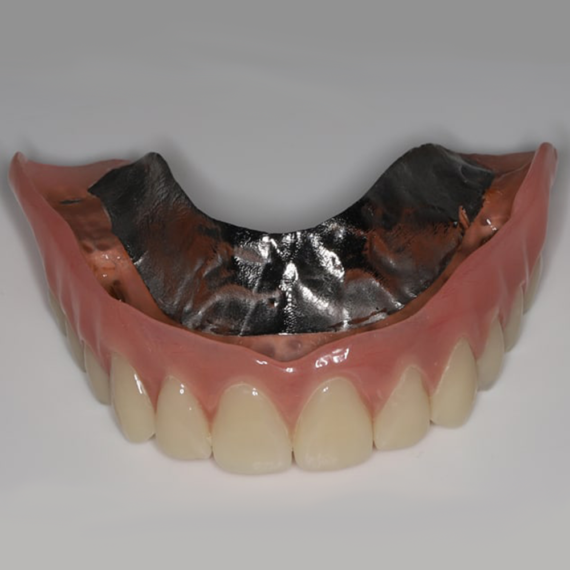Removable dentures in Geneva
Removable dentures are prostheses that can be removed. It can be partial, to replace one or more teeth, or complete, to replace all the teeth.

The removable (= unfixed) nature of this type of prosthesis has, like any treatment, advantages and disadvantages.
Among the advantages are:
- lower cost compared with a fixed option,
- possible future repairs easier and less costly,
- modifications according to the evolution of the dentition simpler and more economical,
- better aesthetics in certain situations
The disadvantages are essentially:
- movements and instability, to a greater or lesser extent,
- the need to remove appliances for maintenance,
- the need to regularly adjust the shape of prostheses according to anatomo-physiological changes in edentulous jaws,
- the potential discomfort associated with the amount of material required for strength and proper function (“full mouth” sensation)
- some speech problems.
Removable dentures fall into two categories:
Partial dentures and total dentures.
Partial removable prostheses are appliances that replace one or more missing teeth and take anchorage on the mucous membranes and remaining teeth.

Removable prostheses in resin or nylon
This type of appliance consists of a pink resin (or nylon) base, prosthetic teeth and metal clasps.
Indications:
- urgent cases because it can be made quickly,
- temporary cases pending fixed rehabilitation,
- in certain financially restricted situations due to lower cost,
- in situations with poor prognosis of remaining teeth because easy to transform.
Because of the limited number of sessions and the materials used, its appliances generally present a lower degree of adaptation and comfort compared to removable metal-framed appliances.

Removable prostheses with metal frames
This type of appliance consists of a metal base, usually a cobalt-chromium alloy, prosthetic teeth and metal clasps.
The use of metal for the main connection gives the denture a very high level of strength, reducing the thickness of the base and making it more comfortable to wear.
Because of the greater degree of precision required compared to resin partial dentures, a series of appointments and a longer lead time are necessary.
Indications:
- long-term appliance
- several missing teeth

Total removable dentures
Total removable prostheses are used to rehabilitate a totally edentulous (= toothless) jaw. They are supported solely by the mucous membranes (gums).
They are made of resin.
Several sessions of patient/dentist/dental technician interaction are required to manage all functional and aesthetic parameters.
Complete removable prostheses for the upper arch generally hold up well, thanks to the palate’s large support surface, which allows fairly good retention through suction.
Conversely, on the lower arch, satisfactory retention is rarely achieved with a simple denture, due to the extremely limited bearing surface and the presence of the tongue.
To improve comfort, it is possible to increase retention by fitting implants onto which removable dentures are clipped.